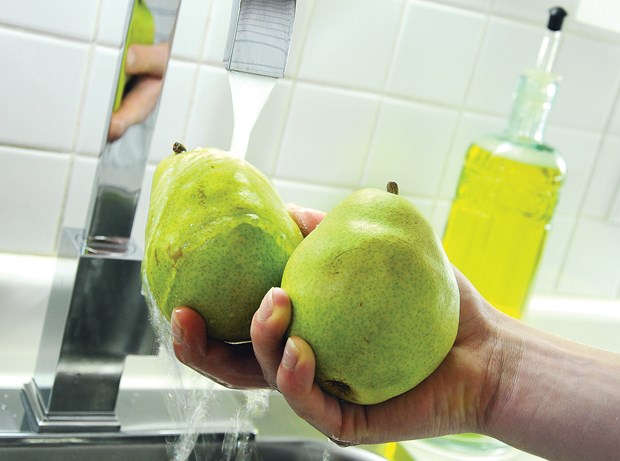Across the globe from India to Europe to North and South America, people are expressing their distaste of GMOs and pesticides in the world's food supply.
For example, 22 European countries and Russia recently voted to ban the growing of GMO (genetically modified organism) food products on their soil out of concern for the health and safety of people and the environment. And recently the World Health Organization's cancer research unit classified glyphosate, the active ingredient in Roundup and other herbicides, as "probably carcinogenic to humans." As a result, California is currently considering banning glyphosate from its agricultural production system. Modern food production is largely controlled by global and multinational companies. Few if any of those companies have head offices in our region. So, when there are court actions against Big-Ag, as there have been recently in the United States, Argentina, Brazil and Europe, we never hear about it in our local or regional news media. Even though such actions directly affect our health through the food we are sold by those companies.
The lack of reporting on those issues by "professional journalists" directly affects the quality and quantity of information we consumers are given. And therefore the lack of news coverage affects our lives in ways we do not understand because we have not been given the information to make a choice.
One of the many reasons I am motivated to write Dig Deep is to expose the truth about misleading or inaccurate information given to gardeners and the general public. And to provide effective alternatives based on my knowledge, experience and training.
My ongoing garden myth-busting stories have focused on telling people what is scientific and practical, and what is nonsense or lies. Food production is widely practised by gardeners and everyone eats, hence my alarm and informed reasoning for focusing this story on our current food supply system. And I have children so my concern is amplified.
So here are my suggestions for avoiding GMO and pesticide contamination in the foods you and your children eat.
Firstly, understand that Canada and British Columbia have reasonably good pesticide registration and use laws - not perfect but far better than the same laws in the United States, Latin America or Asia.
A good example of low-pesticide use produce can be found by buying B.C. Hothouse tomatoes, peppers and cucumbers that are grown on B.C. soil and not in Mexico. In developing countries, many pesticides sold to farmers have been banned by developed nations like Canada, but those pesticides can still be sold to uninformed nations, where some of our food is grown. Choose to buy fruits and vegetables that are locally grown in British Columbia before you buy food from anywhere else.
Secondly, if you have no other choice but to buy produce from Mexico, California, Chile or farther afield, you absolutely must wash those foods in warm water using dish soap to remove pesticide residue before you eat them. Dish soap is specifically designed to dislodge, loosen and break down grease and oils, and dish soap has the same effect on pesticide residue. Don't use hot water because it may wilt the produce, and don't use cold water because it lowers the effectiveness of dish soap. Rinse those washed vegetables with warm water after washing. Don't believe me? Wash one fruit or vegetable and not another, then touch and smell the difference.
Thirdly, many farmers are changing to organic growing methods in response to consumer demand for healthy food choices grown without pesticides or GMOs. The global market for organic products reached a value of almost $63 billion in 2011 according to the International Federation of Organic Agriculture Movements.
Consumer concern is not only about taste or higher nutrients, as has long been incorrectly portrayed in the media as the main choice between organic versus non-organic produce. Concern is directly related to the consumer's desire to avoid poisonous pesticides and GMOs in their food. Some people are paying attention as shown by the B.C. Checkmark program, which is entering its 12 year and uses a green checkmark to signify organic. The program is operated by the Certified Organic Associations of B.C. (certifiedorganic.bc.ca). The Canadian Organic Growers (cog.ca) support organic food production and provides information and ways to be informed and get involved.
Closer to home we need not look farther afield than the Edible Garden Project (ediblegardenproject.com) for ideas and inspiration to find the path to growing healthy food. Their ongoing work at Loutet Farm and Sutherland Market Garden is improving our understanding of sustainable organic food production.
Ultimately, consumers can only make healthy food choices if food product labels truthfully state what is contained in our food, including GMOs and pesticides used to grow the crop. Regrettably, Canada does not require GMOs or pesticide use to be labelled on the product so consumers are being denied their lawful right to freedom of choice.
Todd Major is a journeyman horticulturist, garden designer and builder, teacher and organic advocate. [email protected]



